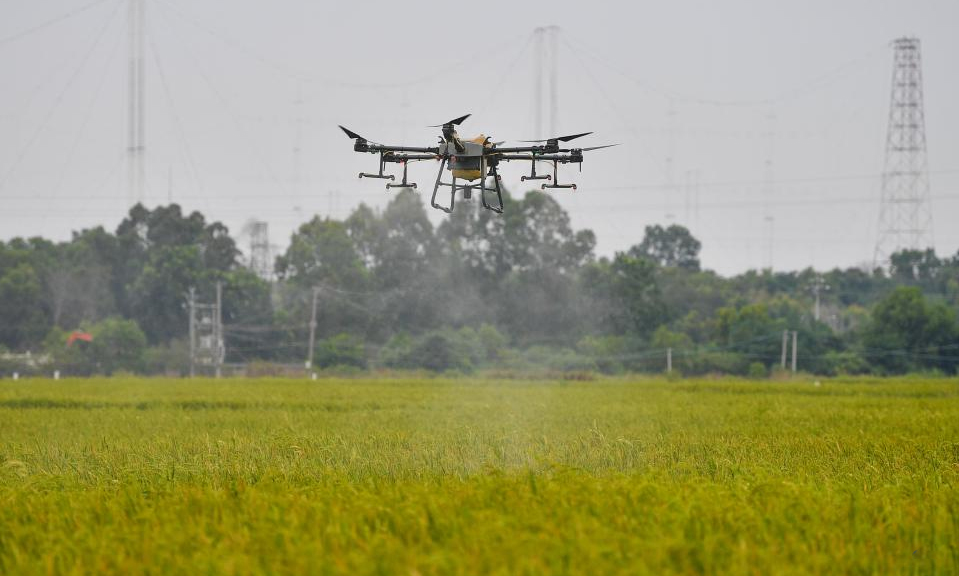Health experts concerned over triple threat of flu, COVID, RSV in U.S.
LOS ANGELES, Oct. 25 (Xinhua) -- Respiratory viruses are spreading at high levels in the United States as temperatures begin to drop, causing the surge of pediatric cases across the country.
Health experts are concerned over the triple threat of flu, COVID-19 and Respiratory Syncytial Virus (RSV), urging the public to get flu shots and COVID-19 vaccinations, and be aware of symptoms of severe illness.
The flu, COVID-19 and RSV are all highly contagious respiratory infections caused by different viruses: flu by influenza virus, COVID-19 by SARS-CoV-2 virus, and RSV by respiratory syncytial virus.
RSV usually causes mild, cold-like symptoms, but can be dangerous for some infants and young children, according to the Centers for Disease Control and Prevention (CDC).
Surveillance data collected by the CDC clearly shows a rise in RSV cases nationwide in recent weeks, with cases detected by PCR (polymerase chain reaction) tests more than tripling over the past two months.
Children with underlying health conditions, such as chronic lung disease or heart problems, may also be at higher risk for severe illness from respiratory viruses, said Dr. Nusheen Ameenuddin, a pediatrician at the Mayo Clinic in Rochester, Minnesota.
If left untreated, severe cases of COVID-19, RSV or the flu can develop into pneumonia, an infection of the lungs, said Dr. Peter Hotez, a co-director of the Center for Vaccine Development at Texas Children's Hospital.
RSV is also known to cause bronchiolitis, an inflammation of the small airways in the lungs, according to the CDC.
Both pneumonia and bronchiolitis can be deadly, especially in children with underlying health conditions, according to experts.
Hotez urged parents to get their children vaccinated against COVID-19 and the flu. "There are three viruses circulating," he said, "and if you can take one or two of them off the table by getting your child vaccinated, that makes things much more straightforward."
The COVID-19 vaccination rate in the United States lags that of many other high-income countries. Less than half of the total booster-eligible population in the United States has received a COVID-19 booster dose, according to latest CDC data.
About 226.6 million people, or 68.2 percent of the total U.S. population, completed a primary series as of Oct. 20. But only 49.1 percent of the total booster-eligible population has received a booster dose, CDC data shows.
Photos
Related Stories
- Less than half COVID booster-eligible population in U.S. boosted
- Some U.S. Black physicians pushed out of hospitals due to racial discrimination: ABC News
- For kids with Long COVID, good treatment hard to find in U.S.: Time
- Violent crime top political concern in Houston: U.S. media
- Three killed including suspect in St. Louis high school shooting
- U.S. math scores made zero progress during lockdowns, data shows
- Economy, racial justice, abortion access among top concerns for U.S. Gen Z voters of color: report
Copyright © 2022 People's Daily Online. All Rights Reserved.









